Attention, travelers: Your suitcase is getting smarter
From The Idea Factory, our special report on innovation

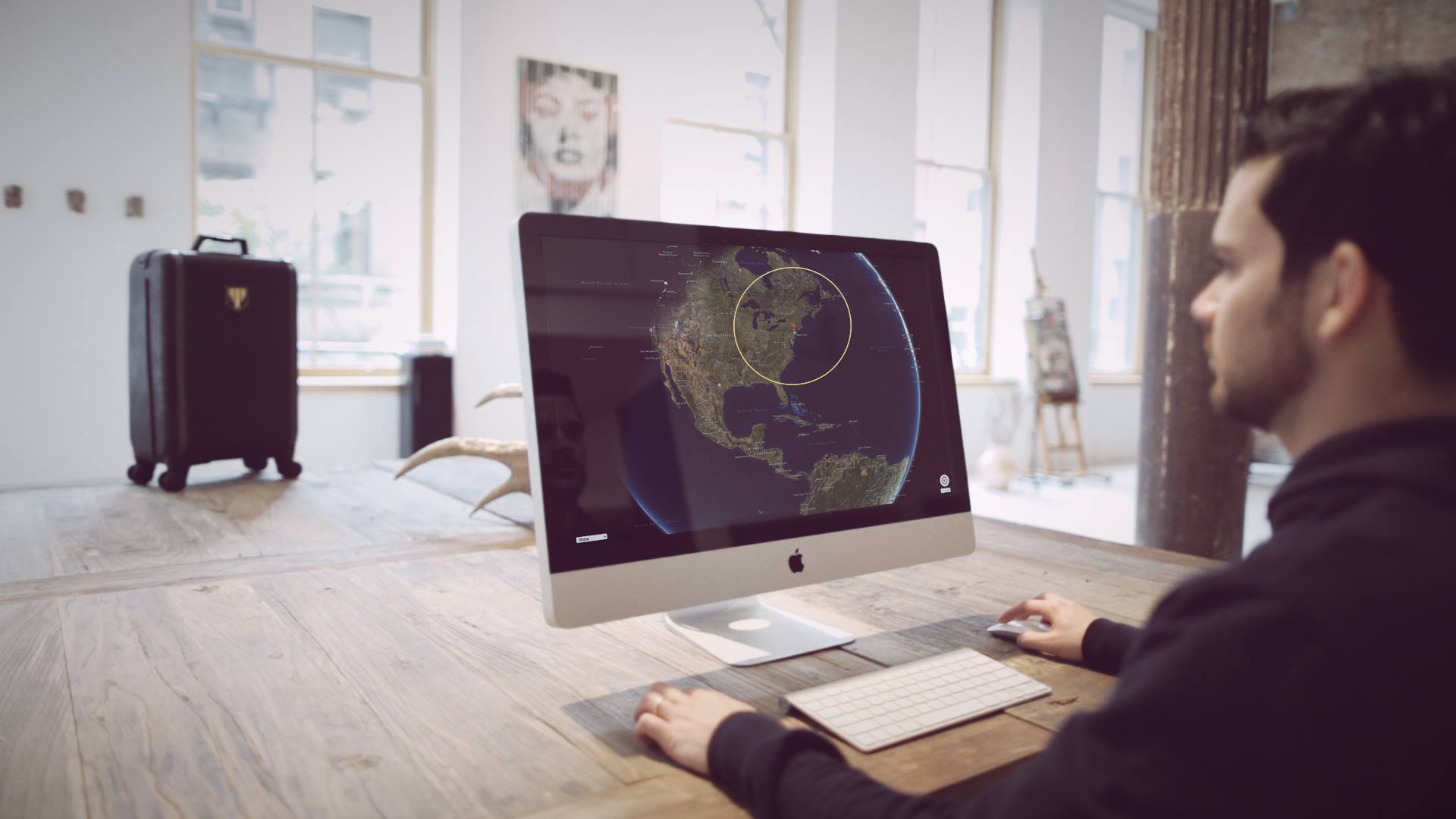
A free daily email with the biggest news stories of the day – and the best features from TheWeek.com
You are now subscribed
Your newsletter sign-up was successful
At the end of 2014, a technology company called Bluesmart launched a fundraising campaign on Indiegogo for a smart carry-on bag. The goal: $50,000. The suitcase promised an array of "revolutionary features" like mobile location tracking, a built-in weight sensor, and an automatic locking system. "If you think about it, suitcases haven't seen much innovation for several decades," the Bluesmart creators said. The company raised more than $2 million for its high-tech luggage by the time the campaign was over.
For all the innovations aimed at the travel industry (hotels even have robotic bellhops, for crying out loud), the humble suitcase has remained relatively untouched. You pack it, you lug it, you pay an exorbitant amount to check it, and when you land, it may or may not land with you. Bluesmart and a handful of other companies think it's time the suitcase got a bit more high tech. "What you're seeing is the first round of innovation that will take time to evolve," Frank Gillett, an analyst at Forrester Research, told The New York Times. "The goal is to improve the travel experience." Here, a look at six futuristic suitcases and their most interesting features:
The Week
Escape your echo chamber. Get the facts behind the news, plus analysis from multiple perspectives.

Sign up for The Week's Free Newsletters
From our morning news briefing to a weekly Good News Newsletter, get the best of The Week delivered directly to your inbox.
From our morning news briefing to a weekly Good News Newsletter, get the best of The Week delivered directly to your inbox.
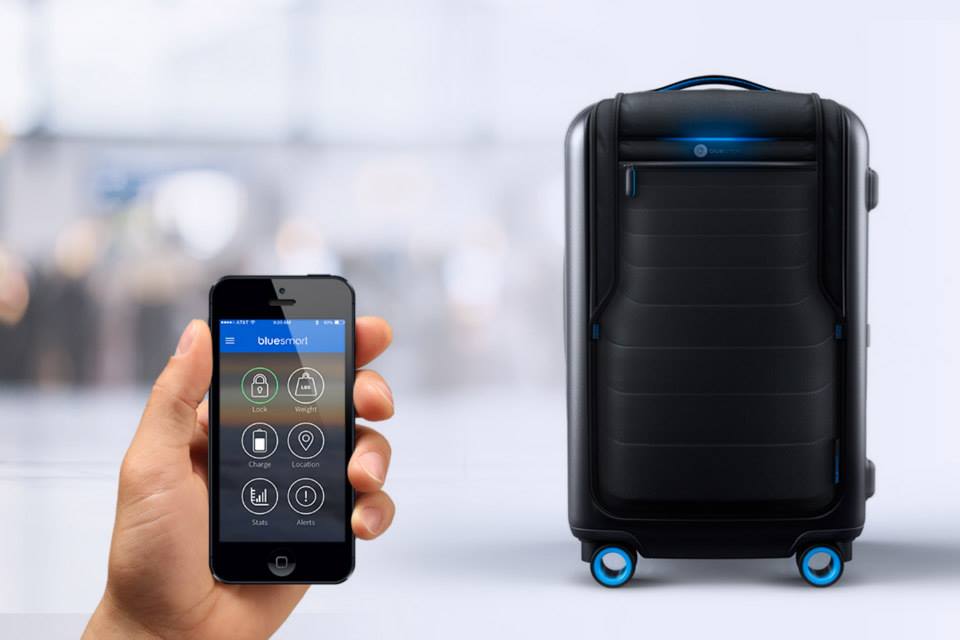
Cost: $319 early bird special, will eventually retail for $450 or more
Features: The Bluesmart app (on iOS or Android) syncs with your suitcase to provide proximity alerts and remote tracking. A built-in digital scale ensures the bag is within weight restrictions. "The suitcase becomes your personal travel assistant," its creators say, by giving you relevant data about your destination and telling you how to pack for expected weather. The bag also has a USB battery charger for your smartphone.
What makes it unique: Anti-theft properties built into the Bluesmart make it hard to lose the bag. When you get too far from the bag, it will let you know. And if you get separated, the bag locks automatically and you can track its location on your phone.
2. Andiamo iQ
A free daily email with the biggest news stories of the day – and the best features from TheWeek.com
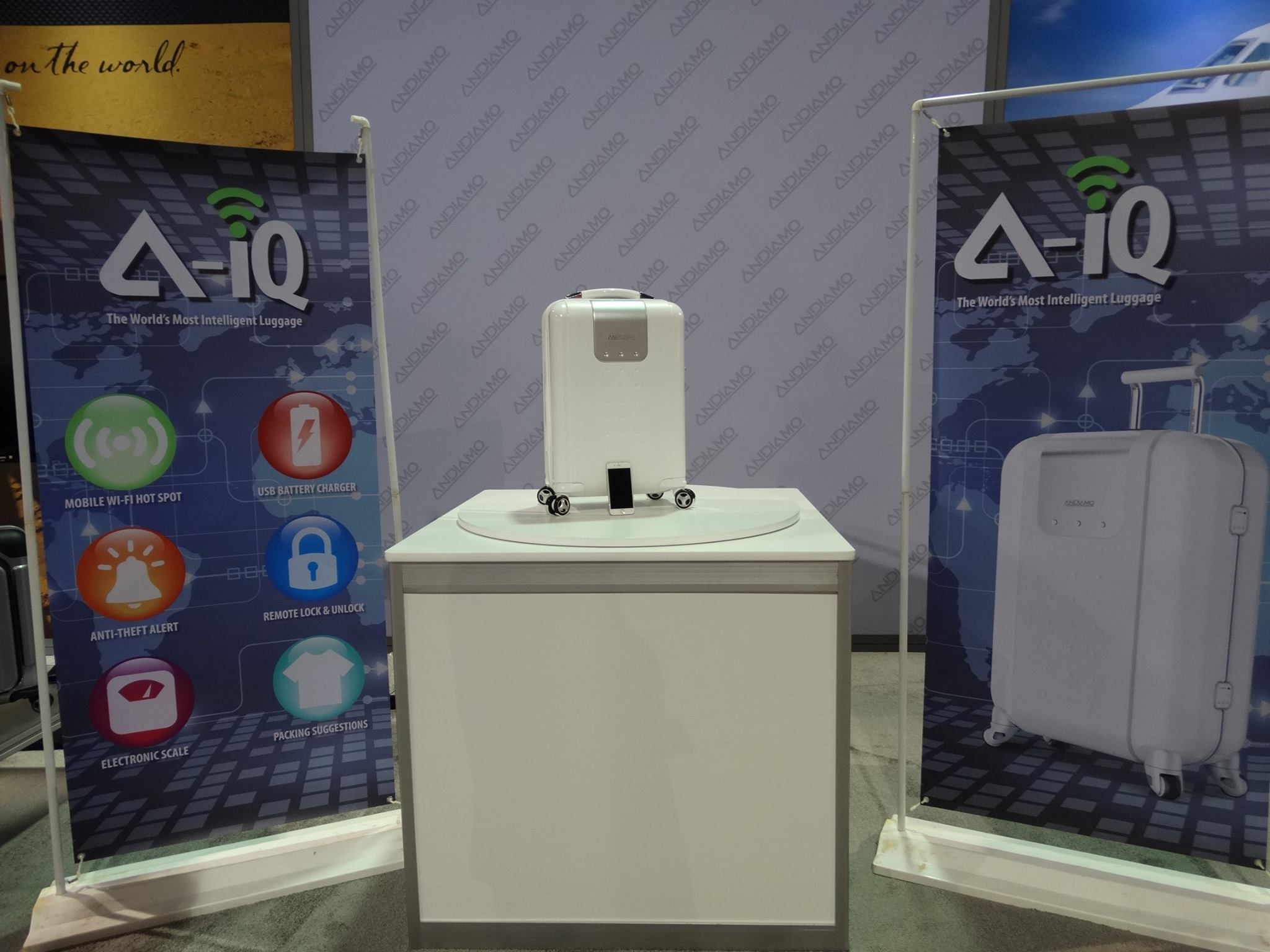
Cost: They haven't announced it yet. But existing Andiamo carry-on bags retail for between $500 and $700.
Features: Remote digital locking, digital scale, USB battery charger, proximity alerts, travel alerts, and recommendations for your trip.
What makes it unique: The bag acts as a Wi-Fi hotspot so you don't have to pay to browse the internet while waiting for your flight.
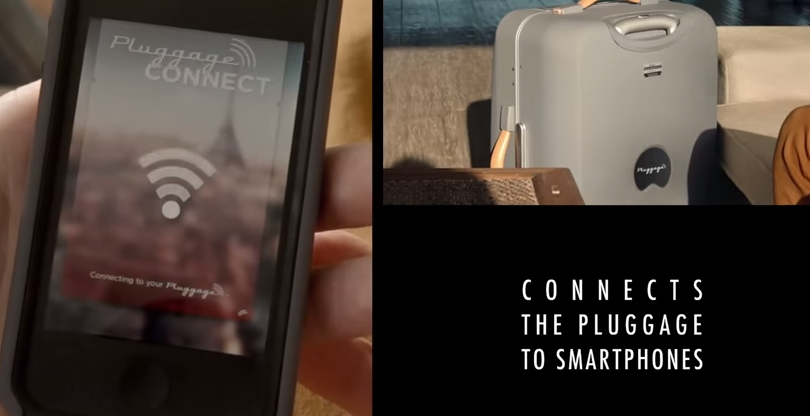
Cost: $600 for a 24-inch model
Features: Delsey is still gathering feedback for this prototype, but some of the features it's considering include a built-in weight sensor, flight info and digital boarding pass, a lighting system for illuminating the inside of the bag, phone charging capabilities, and a built-in speaker.
What makes it unique: A fingerprint unlocking system in the app would open your bag digitally, just like your fingerprint unlocks your phone. You can also see if the bag has been opened during the flight. Finally, the app can tell you if your bag is on board, though I'm not sure I'd want to know for fear of having a nervous breakdown before takeoff if my bag got left behind.
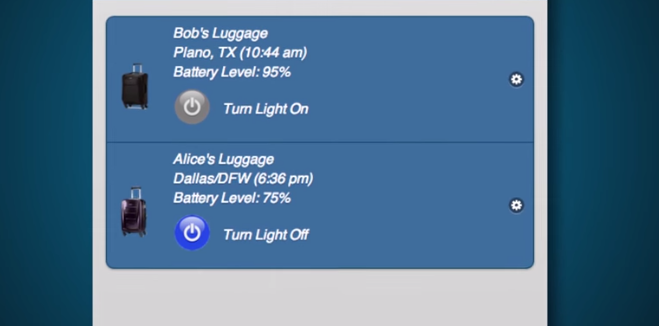
Cost: They haven't announced it yet.
Features: Last year, AT&T unveiled this smart luggage concept at its Innovation Showcase in New York. The prototype is still just that, a concept, but it's a refreshingly stripped-down version compared to other options. It lets you do one thing well: Find your missing bag. A GPS sensor within the bag connects with a smartphone app, and will text you its location or show up on a map.
What makes it unique: With the touch of a button in the app, you can trigger a flashing LED light on your luggage so you don't have to wade through the sea of lost bags to find yours.
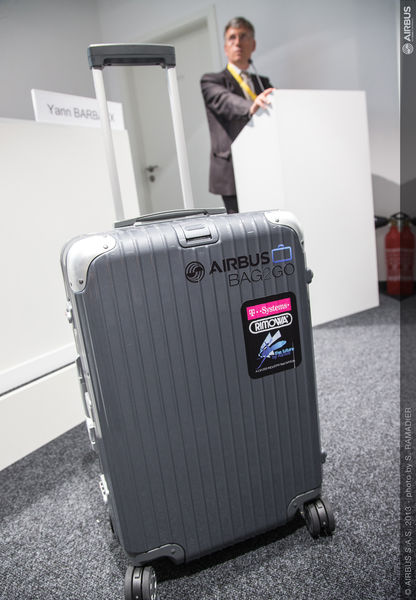
Cost: This is still in early development, but there will be two options: buying a suitcase at a special price, or renting one on a trip-by-trip basis. According to CNET, "Airbus expects it to cost around 20 percent more than a conventional suitcase."
Features: This is a joint initiative between Airbus, the T-Systems global IT services company, and luggage manufacturer Rimowa. Like many of the previously listed apps, it provides GPS tracking, and alerts you when the bag has been opened. It features a weight sensor and provides travel tips.
What makes it unique: The plan seems to be let customers have their bag picked up and sent to the airport once packed, and then delivered to the hotel when they've landed.
6. Trunkster
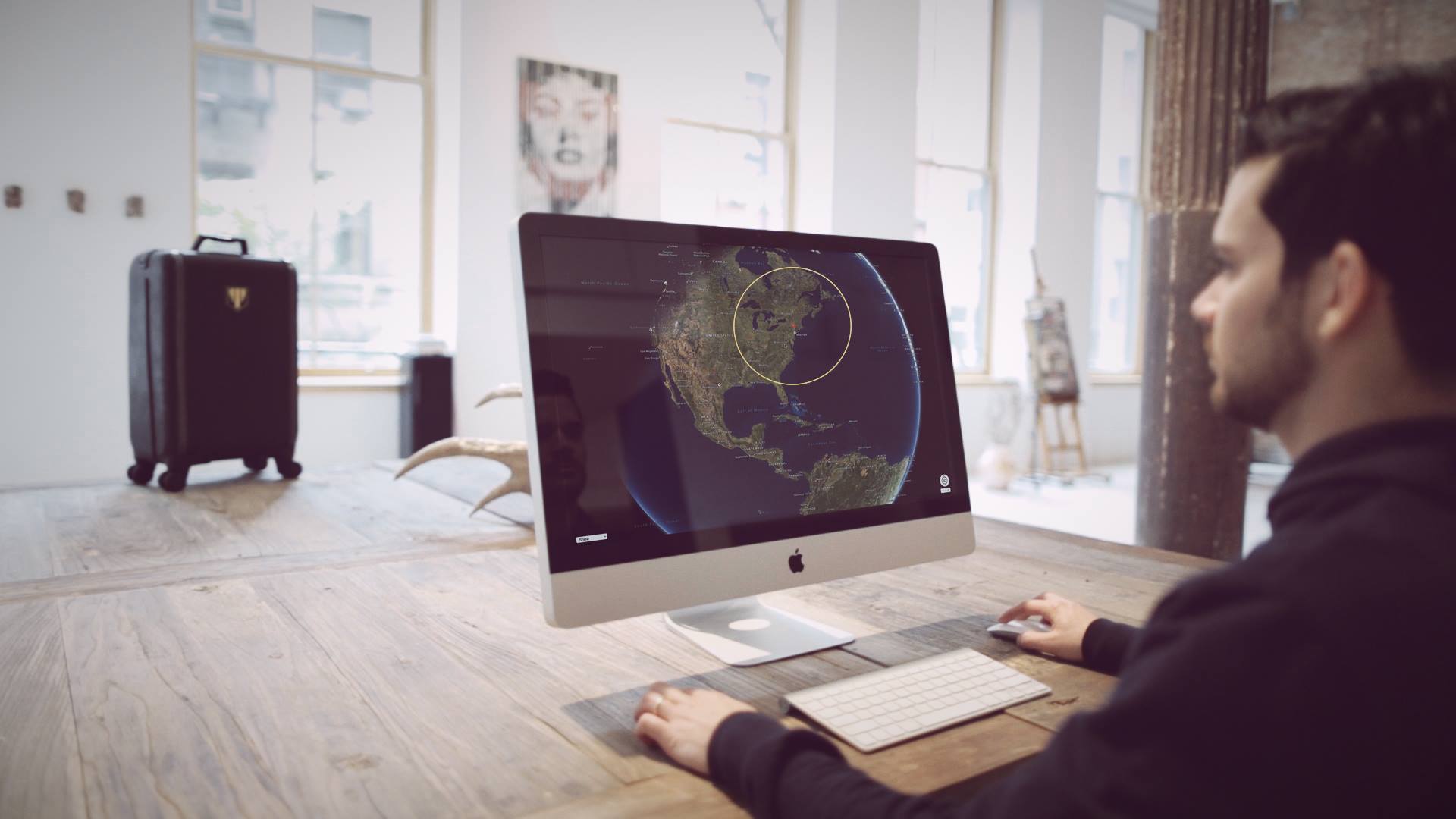
Cost: $325 for a carry-on; $350 for a checked bag; $650 for both.
Features: This design garnered $1.4 million on Kickstarter and is slated to be released this summer. It offers a USB charging port, GPS tracking, digital scale, and a sleek look.
What makes it unique: The creators of this bag pride themselves on its zipperless design, "representing the first major update to the core industrial design of luggage since wheels." Instead of a flap that closes with a zipper, the Trunkster has a roll top for easy access to the bag's contents. It's made with "aircraft-grade material and light polycarbonate plastic to give the luggage a tougher build." If you're spending top dollar for a smart suitcase, you want it to be durable.
Jessica Hullinger is a writer and former deputy editor of The Week Digital. Originally from the American Midwest, she completed a degree in journalism at Indiana University Bloomington before relocating to New York City, where she pursued a career in media. After joining The Week as an intern in 2010, she served as the title’s audience development manager, senior editor and deputy editor, as well as a regular guest on “The Week Unwrapped” podcast. Her writing has featured in other publications including Popular Science, Fast Company, Fortune, and Self magazine, and she loves covering science and climate-related issues.
